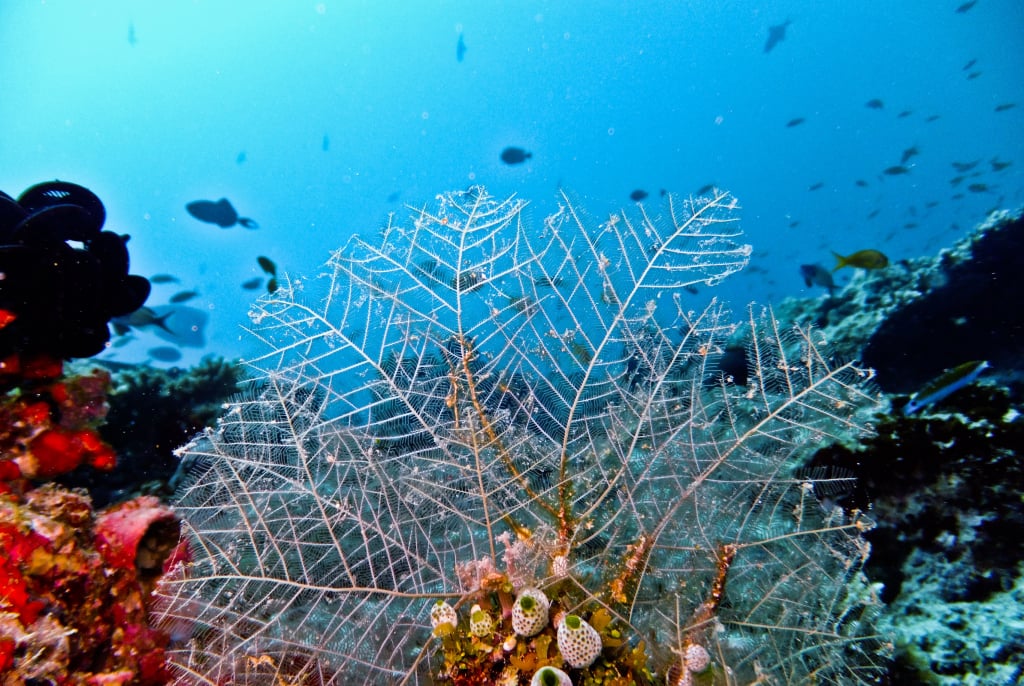Stay informed and up to date on sustainable happenings around the island, as curated by our team of resident marine biologists.
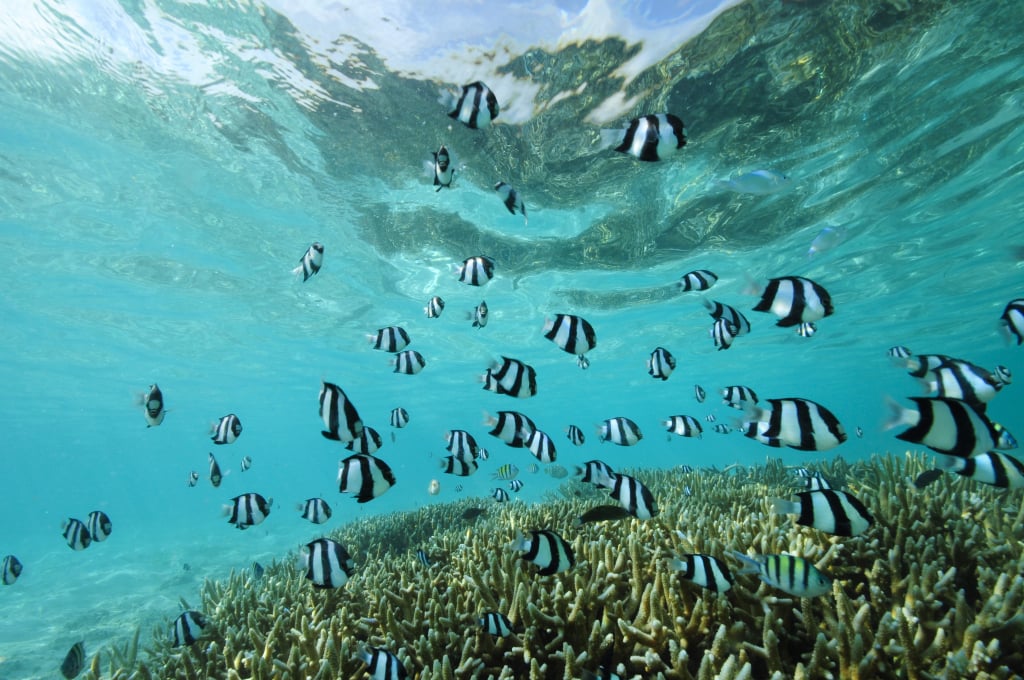
At the heart of Gili Lankanfushi’s environmental initiatives lies Gili Veshi, our primary marine research facility. Here, our team of marine biologists leads guests in activities such as reef cleaning, insightful presentations on wildlife, and support vital research with data collection benefiting organisations like Manta Trust.
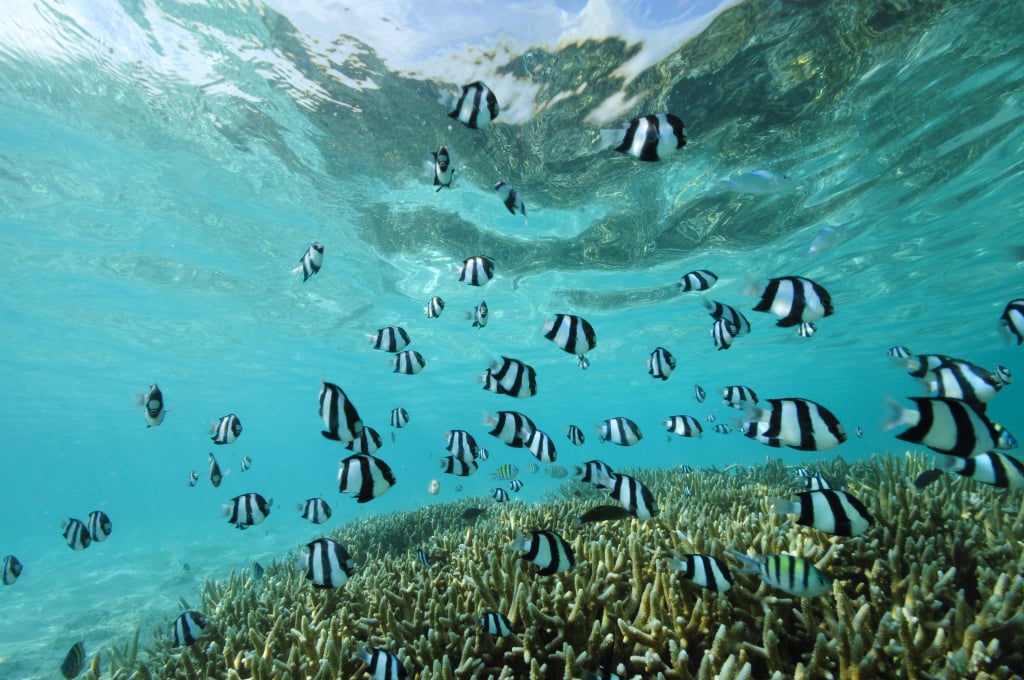
WHAT WE DO
We ensure the livelihood of our natural world for generations to come.
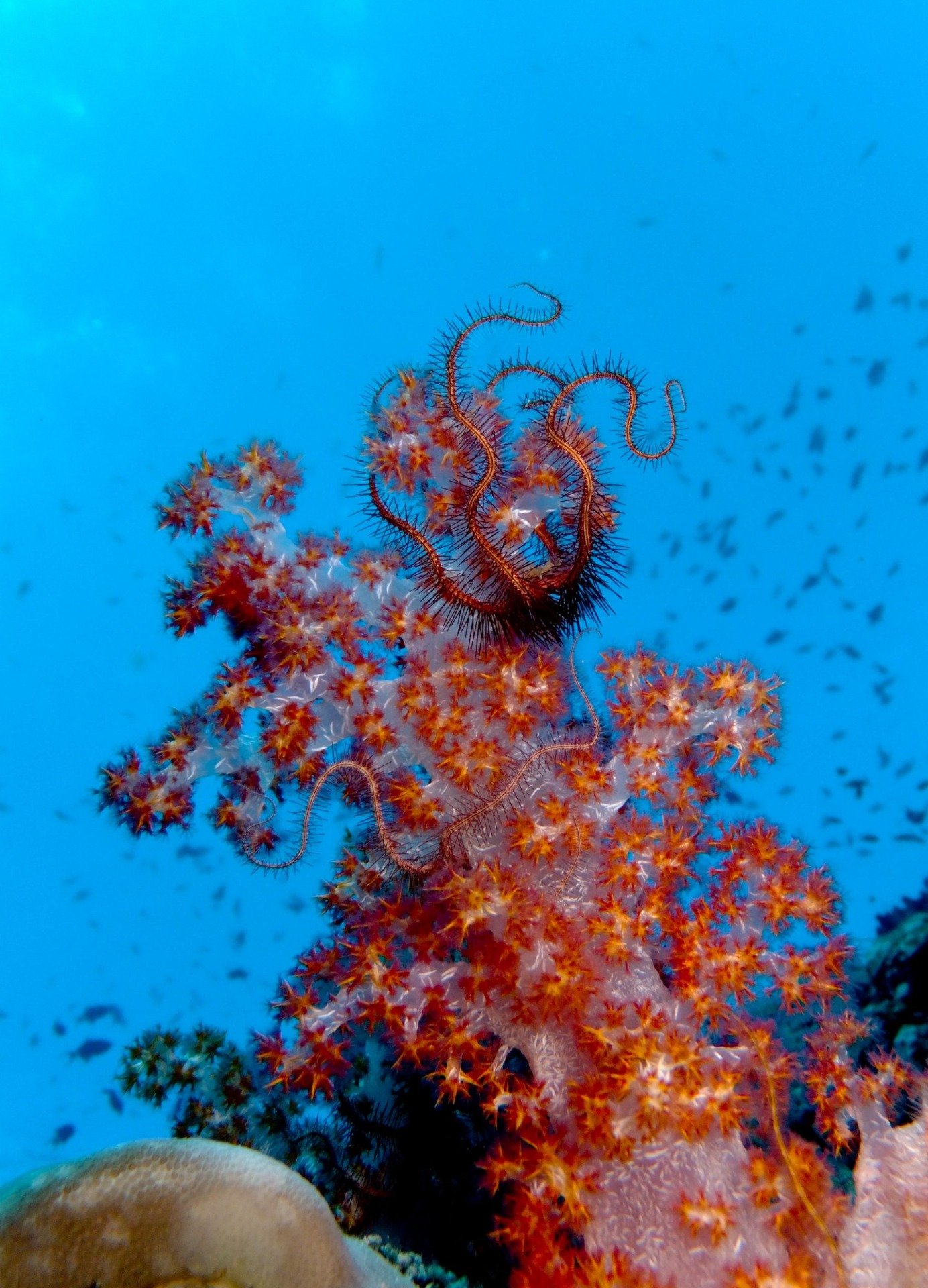
The ocean is the life-giving force of the Maldives. Formed by corals, the island nation has long powered the livelihoods of locals as well as tourism. It’s because of this that Gili Lankanfushi has made an utmost commitment to the rich marine biodiversity that encircles our island.
Since 2012, we’ve employed marine biologists who manage Gili’s coral reef, spread environmental awareness, support guest experiences, and keep our management informed of any ecological issues.
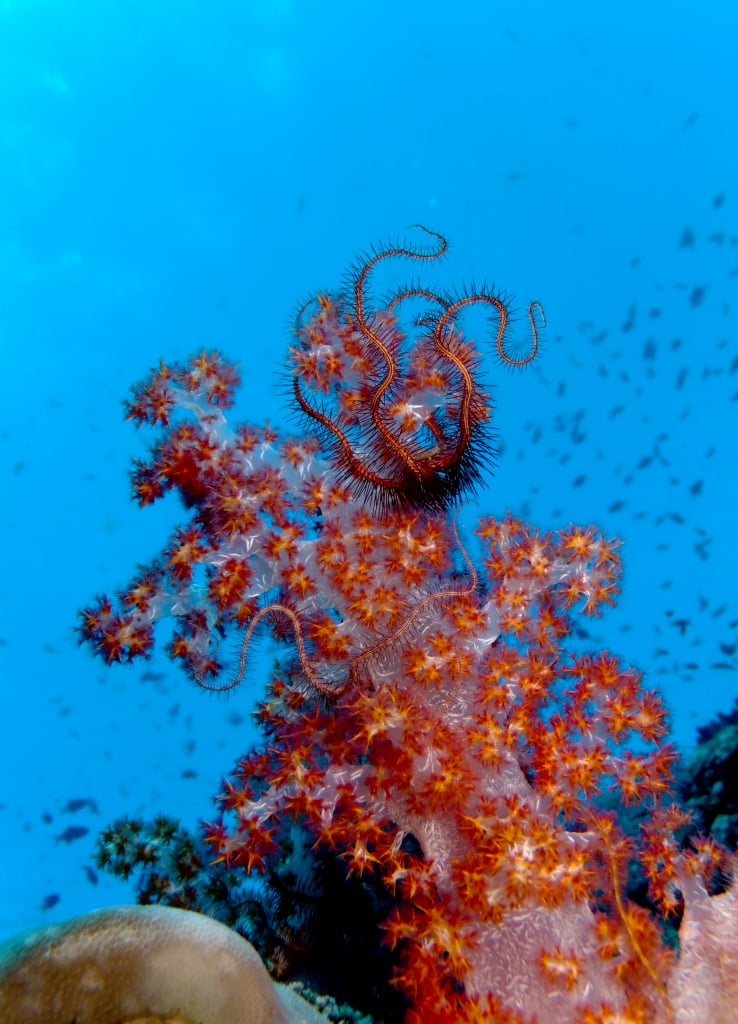
We monitor the reefs surrounding the resort using a variety of methods. By doing so, we’re able to determine why changes occur and further protect our fragile ecosystem.
With the help of our dive team, we work hard to get good photos of the manta rays that visit our nearby reefs and keep count of manta sightings through the manta season, and report the data to the Manta Trust to identify the mantas and work out seasonal migration patterns. We also work with the Olive Ridley Project to identify turtles and to prepare for any turtles we may encounter trapped in ghost nets, and we work with the Maldives Whale Shark Research Programme to identify whale sharks we see and photograph on our excursions.
We offer a series of presentations on marine megafauna, climate change, our marine ecosystems, plankton and sustainability.
We team up with our dive centre to offer regular reef clean-ups by snorkel and scuba with both our guests and hosts.
Our marine biologists have developed a “Sustainability” training session that is compulsory for all hosts that teaches about the importance of saving water, energy, and the environment. So far, 97% (and counting) of our hosts are trained.
As a Gold Benchmarked property, we strive to achieve international best practices in terms of sustainability. It’s our job to collect data from around the resort to ensure we’re on track for our annual benchmarking assessments. We are also developing various policies, including an environmental monitoring system and a sustainability action plan, to keep us on the right path.
The Coral Lines Project
Coral reefs are some of the biodiverse yet threatened ecosystems in the world. Through action and research, we’re committed to rehabilitating these fragile formations. We’re proud to be the first resort in the Maldives to develop specific coral reef recovery techniques.
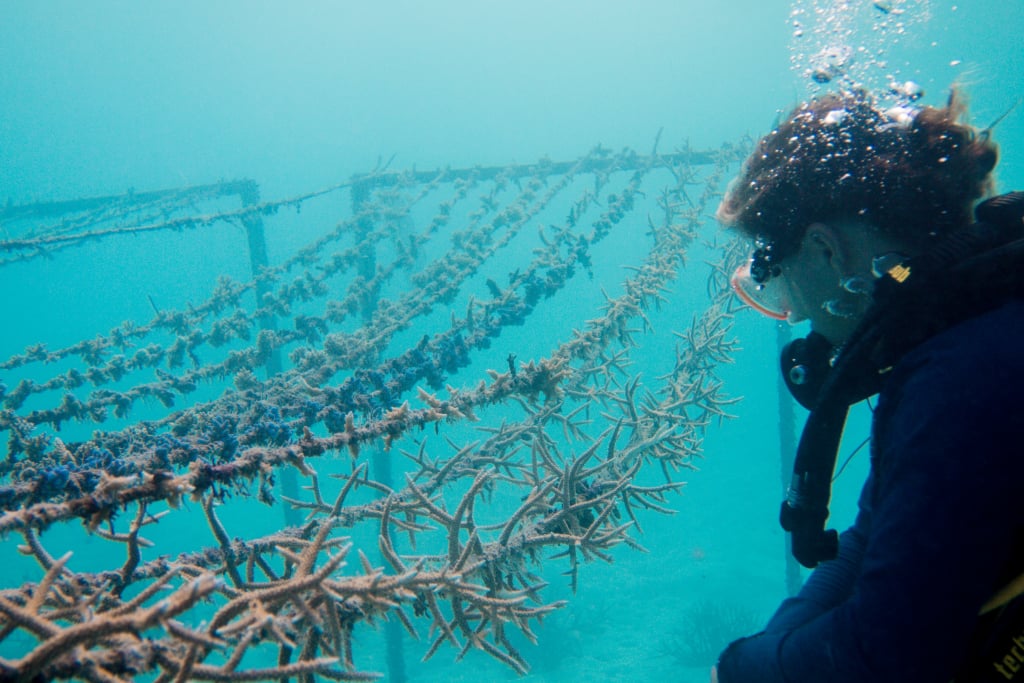
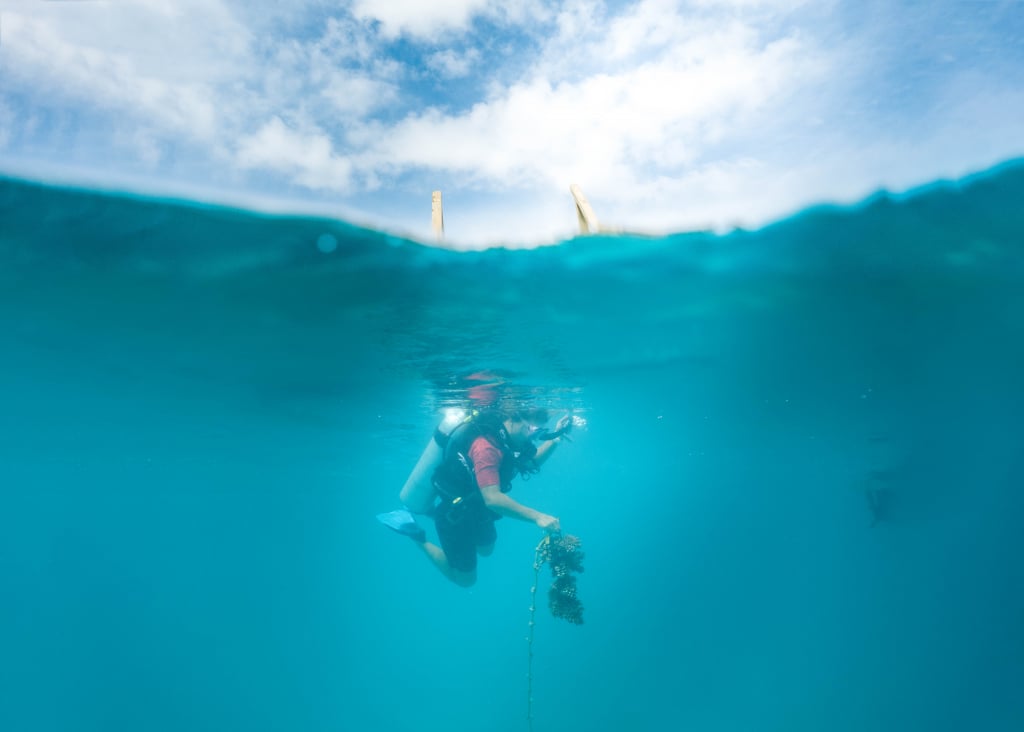
At Gili Lankanfushi, we’re rehabilitating the coral reef by nursing coral on ropes (lines) and transplanting them onto degraded reef areas three years later. Every rope is planted with 20 or more small, living coral fragments. Over time, we expect the corals to grow stronger and bigger and will use them to help improve the health of our house reef. The next phase of this project is to start moving the mature corals from our nursery to a new area of the house reef. We will monitor this area and a control area to see how transplantation affects the fish life and biodiversity of the reef. For every coral line that a guest donates, 75% of the proceeds goes to our Gili SEAS (Social & Environmental Awareness and Sustainability) fund.
In March 2014, marine biologist Vaidotas Kirsys started the Coral Lines project and we became the first resort in Maldives to work on low-tech and high-efficiency coral reef recovery techniques that involve rope. Later Deborah Burn and Josie Chandler joined the team, and with their knowledge, help and ideas the project developed greatly. Clare Baranowski, Emma Bell, Sarah Davies, Tiana Wu, Eline Postma, Jocelyn Panjikaran and Hayley Hardstaff continued the efforts on the coral lines. Current Marine Biologists are Renald Yude, Matthew Patrick and Coraline Marot.
Coral Lines offers four things: guest education during an unforgettable close-up encounter with coral; a contribution to coral reef rehabilitation science; a way to fund our social & environmental projects; and last but not least, the project helps one small coral reef to recover. The Coral Lines project is also about sharing our findings with everyone – hopefully, giving a better understanding of how to grow coral to those working in this field.
One of the problems that science faces these days is that researchers often do not share their findings until their project is finished (a paper is published). When it comes to coral reef restoration, to answer many questions, a research project would normally take several years (corals grow slowly). The question is; do we actually have that time to spare? We think, with the threats facing coral reefs becoming more imminent, the answer is ‘no’, and so we have decided to make our work open access and share our Coral Lines research project findings on a regular basis!
Coral Lines is a one-of-a-kind project in Maldives. As far as we know Coral Lines was the first reef rehabilitation project in Maldives which is not focused on profit, rather on science, and one of the very few coral restoration projects that shares the findings online, on an as-we-go basis. This enables us to build awareness within the general public as we work to illustrate our results and share our results with other scientists researching in the field. We hope that by sharing our research, both the positive and the negative, it might prevent the same mistakes happening in future projects, further improving the field of reef restoration.
Our Coral Reefs are incredibly important! The World Meteorological Organization stated that the wealth of goods and services that our coral reefs provide could have a combined worth of more than $30 billion each year! A healthy coral reef provides us with food, tourism, protection from storms and is even a source for new medicine! If the system is damaged, it important for us to try and reverse the damage. Please follow this link to learn more.
Reef Restoration and Rehabilitation is a relatively new branch of science which is practiced all around the world, using various methods. Please follow this link to learn more about the process we use at Gili Lankanfushi.
As with any project, the Coral Lines Project has encountered many challenges during both the planning and operational stages of the project. We feel it is important to share not only the successes of our project, but also the pitfalls and challenges we have faced. In this way, we hope to prevent others from making the same mistakes, and provide solutions for others in the field to freely use.
Following the global mass bleaching event of 2016, it is important to understand what coral bleaching is, and what the consequences are for the reef, as well as for our nursery.
